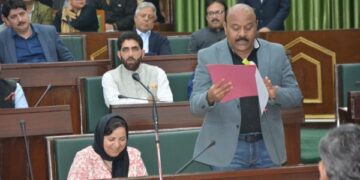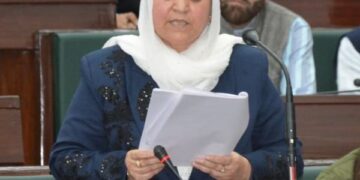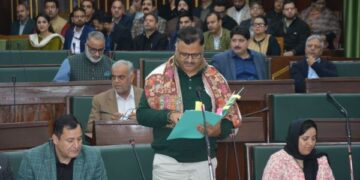Srinagar: In the petition in public interest agitating “shortage” of anti-haemophilia medicines in public hospitals in Kashmir, the High Court has asked the authorities to immediately take cognisance of the matter and submit a detailed report.
The court while hearing a 2010 PIL praying availability of drugs for haemophilia, a bleeding disorder that prevents clot of the blood, on Thursday ordered “we consider it expedient to request Managing Director, Jammu and Kashmir Medical Supplies Corporation Limited (respondent No. 3) to take cognizance of the matter forthwith and submit a detailed report as regards the concerns/grievances that are sought to be made”.
Chief Justice Arun Palli and Justice Rajnesh Oswal observed “the matter is sensitive and has been pending for a while. In the interregnum, numerous orders have been passed by this Court, which show that it requires immediate attention”.
The PIL filed by the Society for Hemophilia Care brought to light significant issues concerning the medical treatment of hemophilia patients in Kashmir. The Society held that multiple that while the J&K High Court has issued multiple directions to the government to ensure the availability of free medication, a persistent shortage of anti-hemophilic drugs continues to put patients at risk.
In 2011 the court had directed the government to provide free medication and ensure anti-hemophilia drugs were available 24/7 in hospitals. However during the spring of the 2025 it was noted that despite the High Court’s orders, the anti-hemophilia factor is often unavailable at SMHS hospital and other hospitals, prompting protests from patients.
Subsequently in August the Hemophilia Society of Kashmir again approached the court pleading that despite numerous directives from the High Court, the government has repeatedly failed to ensure a consistent supply of anti-hemophilic drugs in government run hospitals.
It said that there is a persistent and critical shortage of life-saving medicines like Factor VIII and Factor IX, forcing patients into expensive and often sporadic private treatment or reliance on donations.
The reliance, according to the PIL, on blood products instead of modern clotting factors has led to higher rates of infections like Hepatitis B and C among patients.
The patients say that the original 2010 PIL sought directions for the government to create adequate infrastructure in public health institutions for hemophilia treatment which stands yet to be complied with.
They also say that in April 2025, patients noted that a previous commitment from the J&K National Health Mission to fund the procurement of drugs was not released and that patients’ right to proper and affordable treatment is yet to be materialised.
The Society says that it provides anti-hemophilic drugs and financial aid to patients, particularly during periods of critical shortages in public hospitals but does not have the adequate resources to cater to the emerging needs of scores of patients across the valley.





